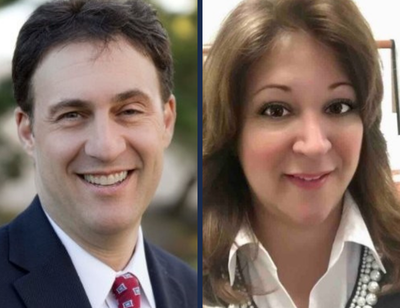![Key Features of the New Trademark Modernization Act Regulations [2022 Updates]](https://feinsuch.com/wp-content/uploads/2022/02/clarisse-meyer-jKU2NneZAbI-unsplash.jpg)
Key Features of the New Trademark Modernization Act Regulations [2022 Updates]
Important Regulatory Changes that Every Trademark Attorney and Owner Need to Know
The Trademark Modernization Act of 2020 (TMA) was enacted by the United States Congress on December 27, 2020. At its core, the TMA created avenues to make it easier for the United States Patent and Trademark Office (USPTO) to remove unused but registered trademarks from the federal trademarks register and streamline the trademark registration process to accommodate an ever-growing influx of applications. The USPTO has now promulgated new rules to implement the TMA. Most of the new rules went into effect on December 18, 2021, although a few are not effective until December 1, 2022.
This article summarizes some of the key changes that trademark attorneys and owners should be aware of.
New Ex Parte Procedures to Cancel Unused Trademarks
The regulations provide new ex parte expungement and reexamination proceedings to make it faster and less expensive than it was to initiate formal cancellation proceedings before the Trademark Trial and Appeals Board (“TTAB”) under the old rules.
Expungement Proceedings
Any party may request cancellation of some or all of the goods or services in a registration because the registrant never used the trademark in commerce with those goods or services. If successful, the relevant registration will be expunged from the trademark registry. This expungement proceeding only applies to marks for which the petitioner can demonstrate a prima facie case based on evidence showing that the registrant never actually used the mark in commerce. This new expungement proceeding must be requested between three and ten years after the registration date, except that it is also available to seek expungement of marks older than ten years as long as the petitioner files for expungement by December 27, 2023.
Reexamination Proceedings
Any party may request cancellation of some or all of the goods or services in a use-based registration on the basis that the trademark was not actually used in commerce with those goods or services on or before a particular relevant date, such as the date of the filing of an original application based on actual use, or the date of filing of an amendment alleging actual use for marks filed based on intent-to-use. In essence, the petitioner is asking the Director of the USPTO to reexamine the original allegation of actual use relied on by the registrant to support the original application, and must demonstrate prima facie evidence that the allegations of actual use were false when made. This new reexamination procedure must be requested within the first five years after registration.
The filing fee for these new expungement and reexamination petitions is $400 per class.
Shorter Response Periods for Office Actions
Starting on December 1, 2022, applicants and registrants now have only three months to respond to office actions issued during examination. The three-month period also applies to post-registration actions. Applicants will have an option to request a single three-month extension for a fee of $125. If they don’t respond within three months or request an extension, the application is deemed abandoned, and the application or registration is canceled.
Letters of Protest
The TMA also codifies new protocols for the long-standing practice by which the USPTO accepted third-party letters of protest objecting to new registrations. Under the new rules, the USPTO is expressly authorized to charge a fee for each letter of protest, but it must act or respond to each letter of protest within two months from the filing date. The rules also make clear that a USPTO decision on a letter of protest is final and non-reviewable.
Fraudulent Attorney Designations
Finally, under the new rules implemented under the TMA, fraudulent or mistaken attorney designations are not effective, and the attorney has no obligation to withdraw formally. Instead, the USPTO will communicate with the applicant directly and consider the designation void.
FSKS is on Your Side
Understanding your intellectual property rights and obligations can be confusing, especially with some of these recent changes under the TMA. As always, we think it’s important to work with an experienced IP lawyer to help you and your business ensure that all of your trademarks are properly registered, maintained, and enforced. Our IP attorneys are always available to help. If you require assistance or have any questions regarding an Intellectual Property matter, don’t hesitate to get in touch with Alan Golub (agolub@fskslaw.com) at 973-538-4700.






